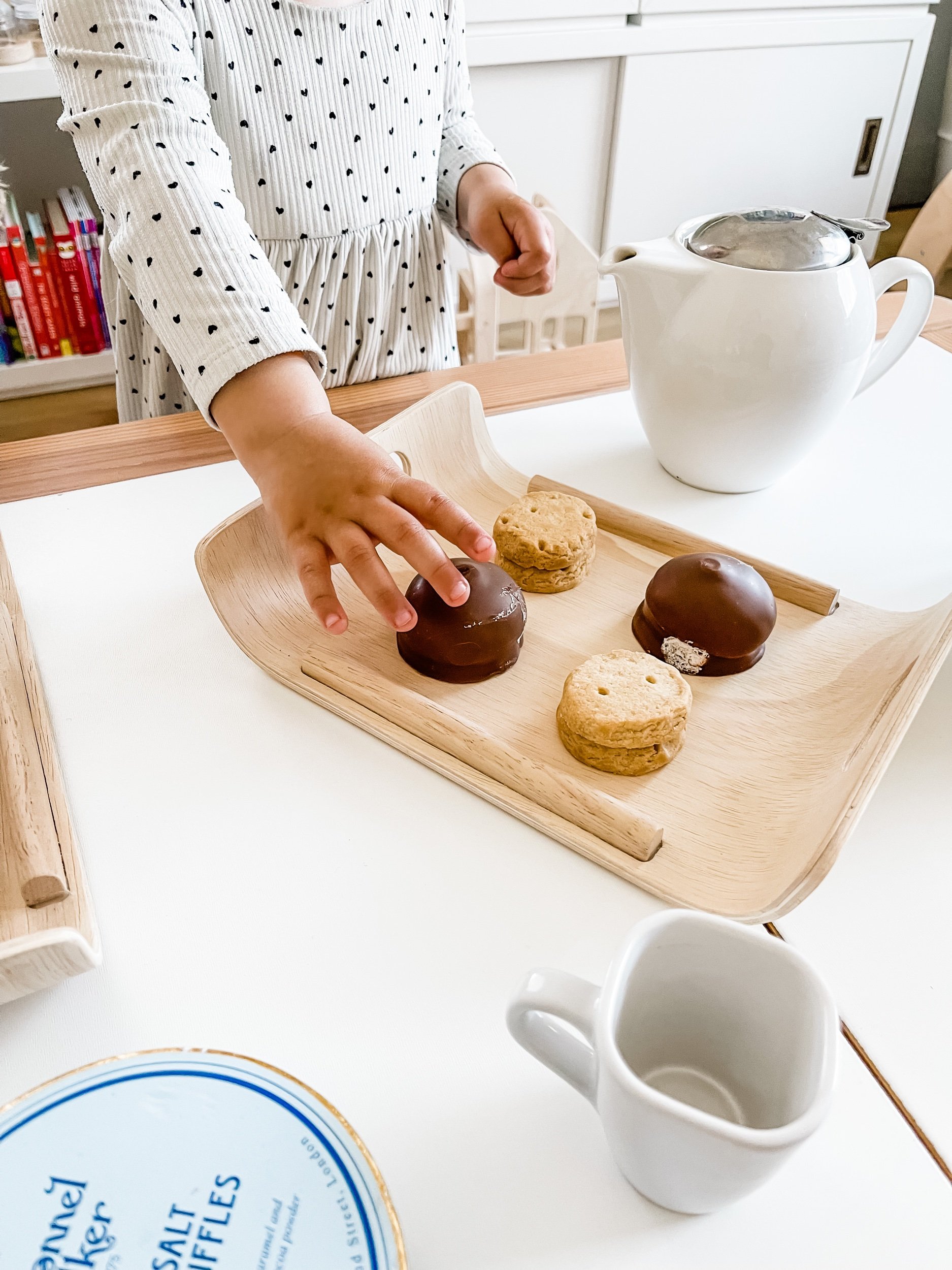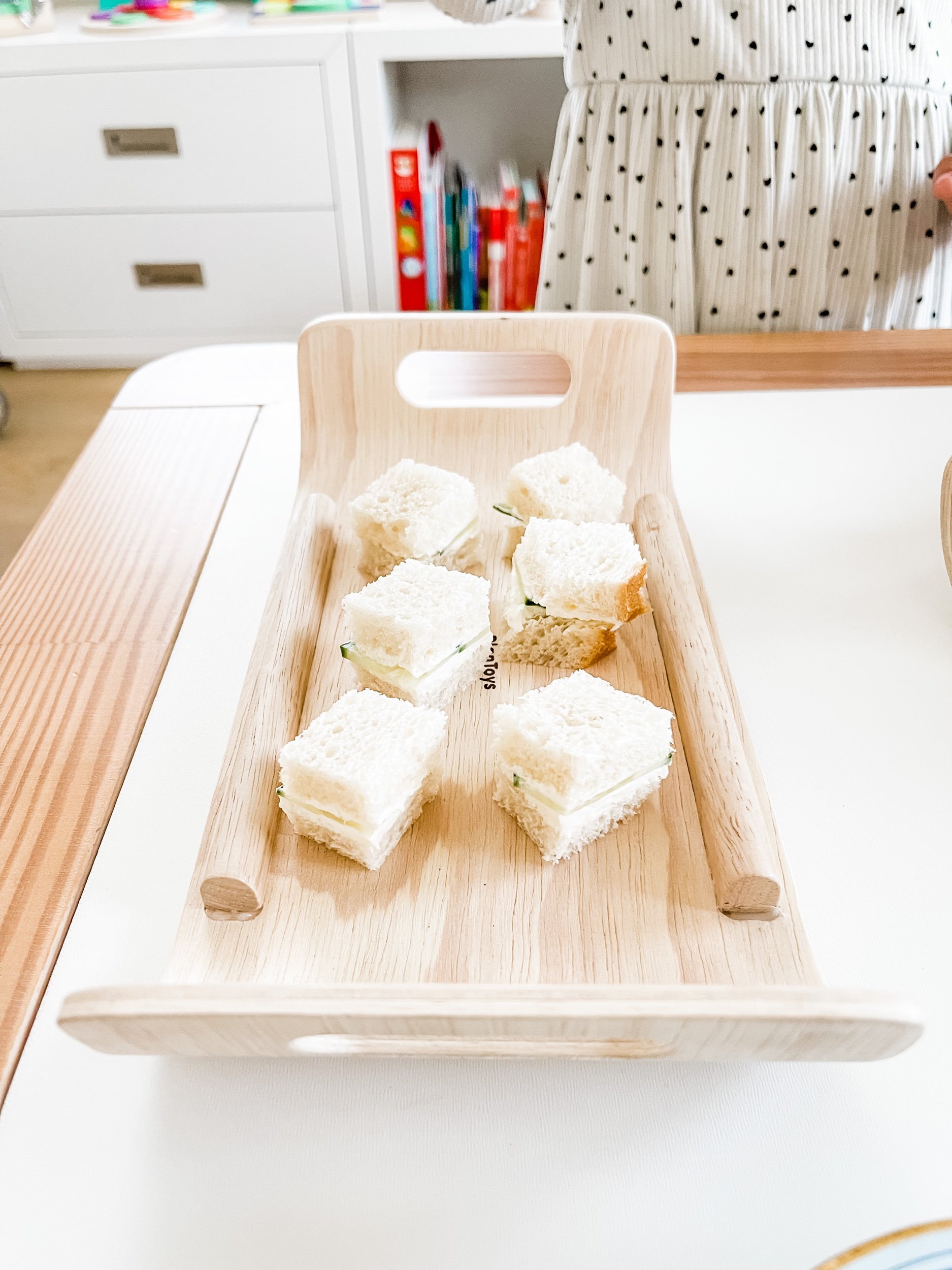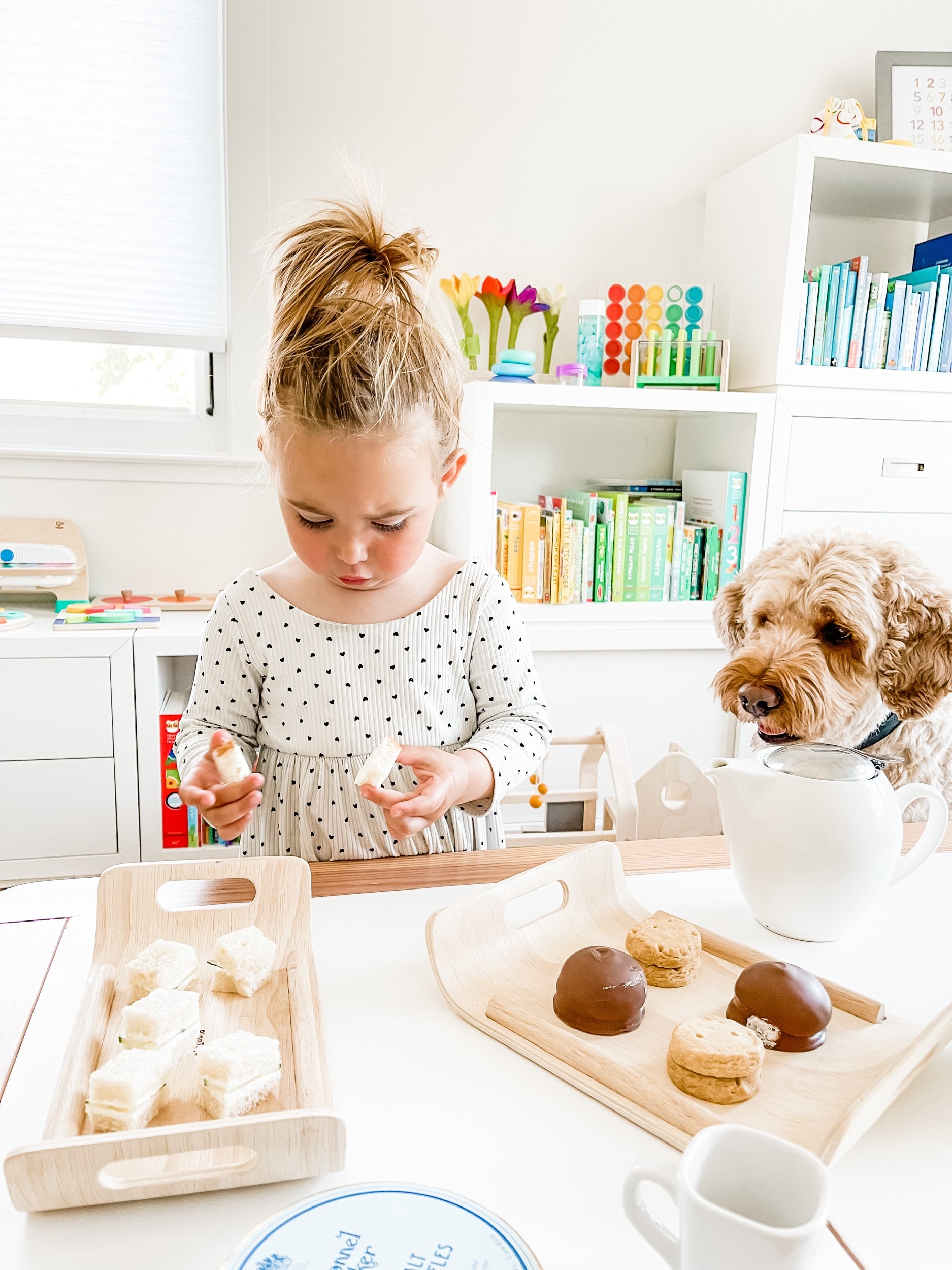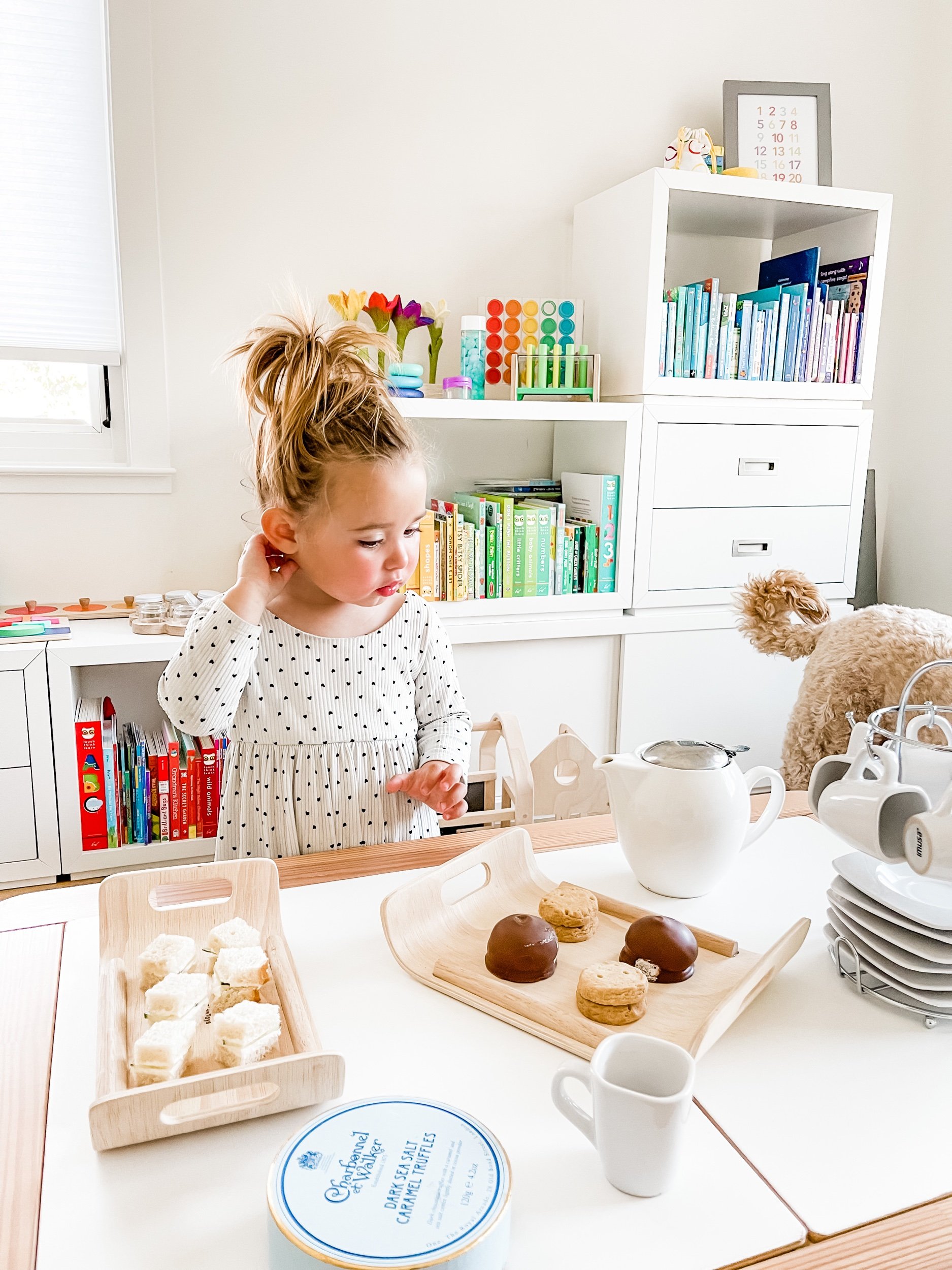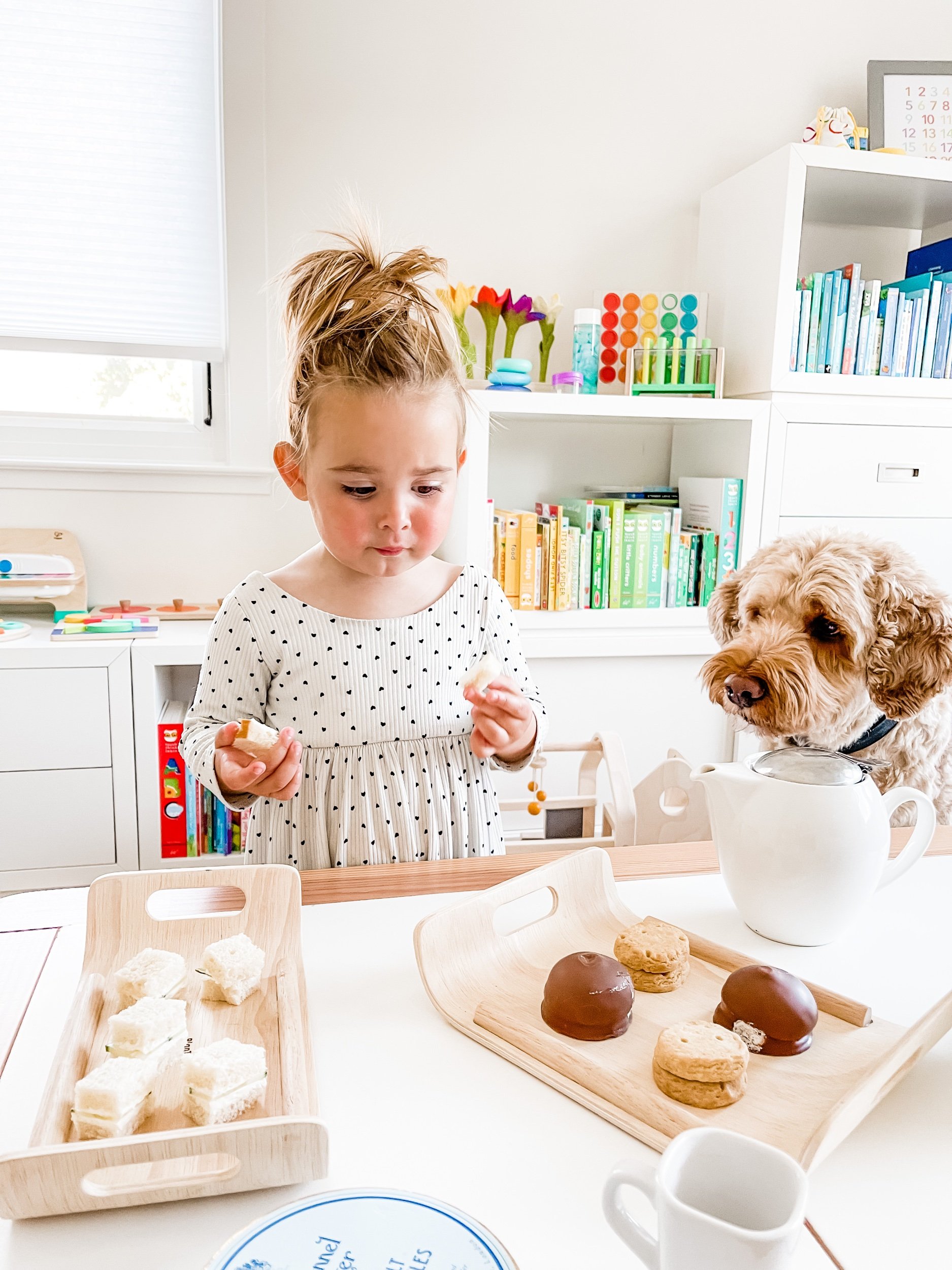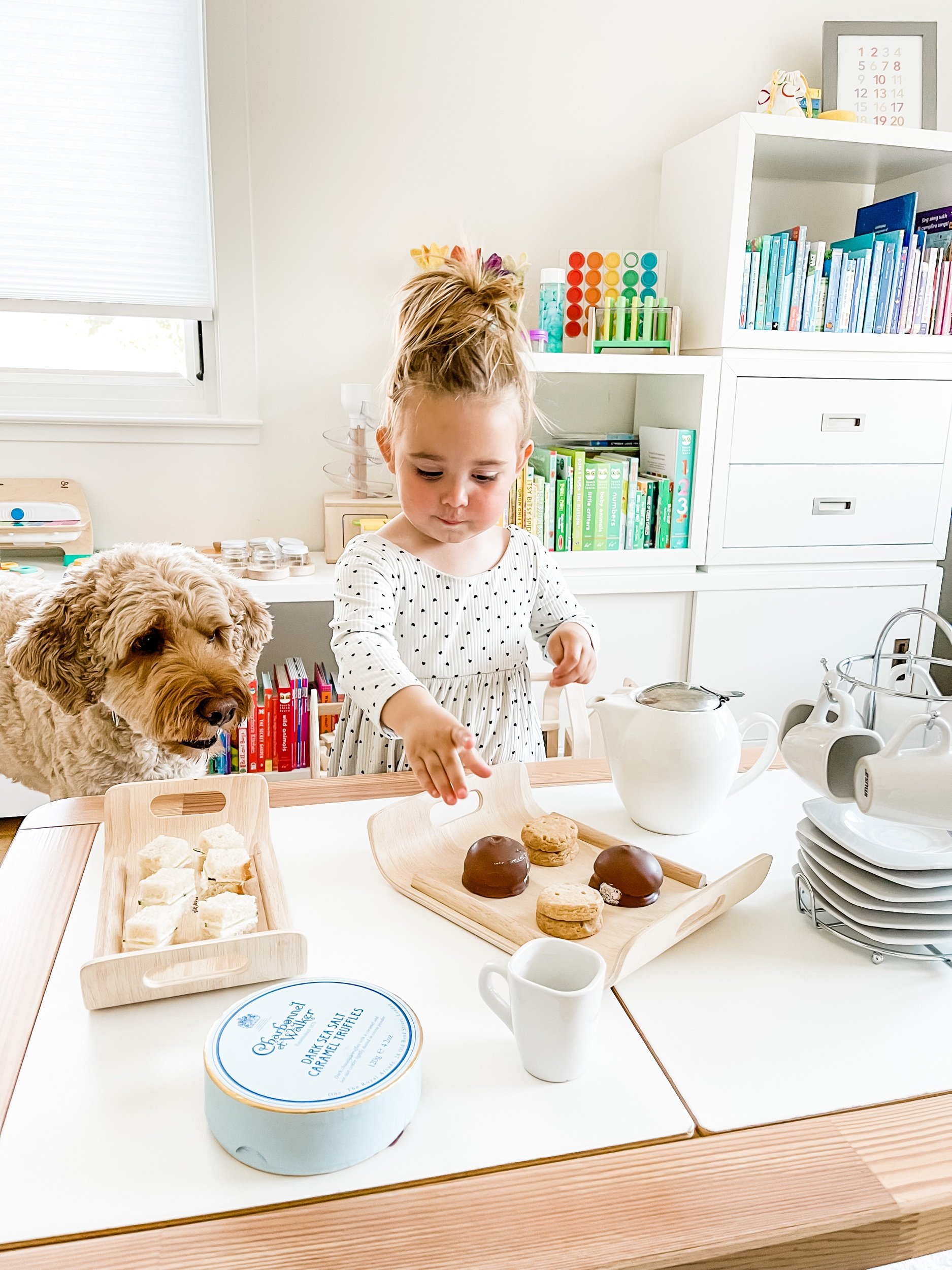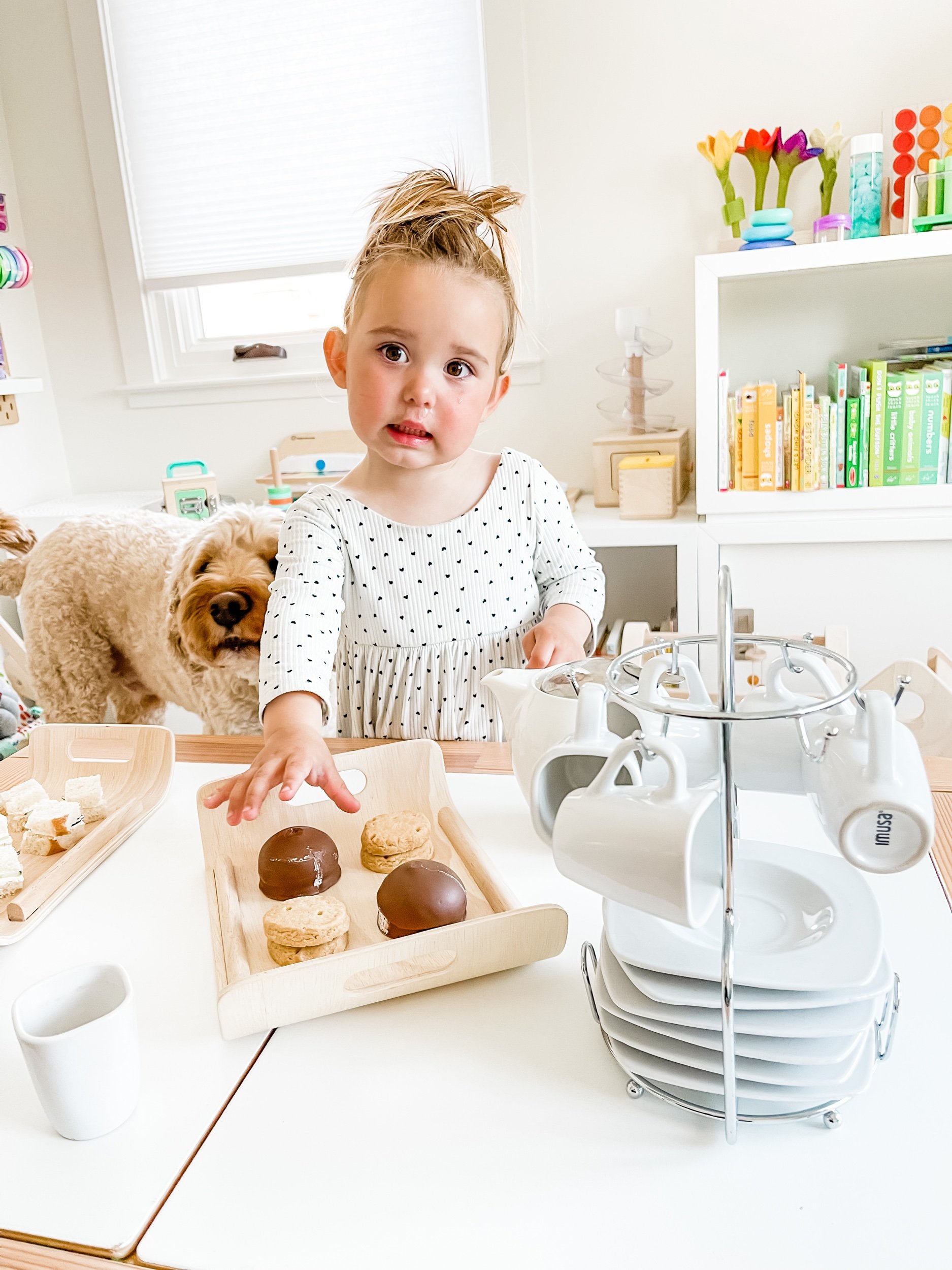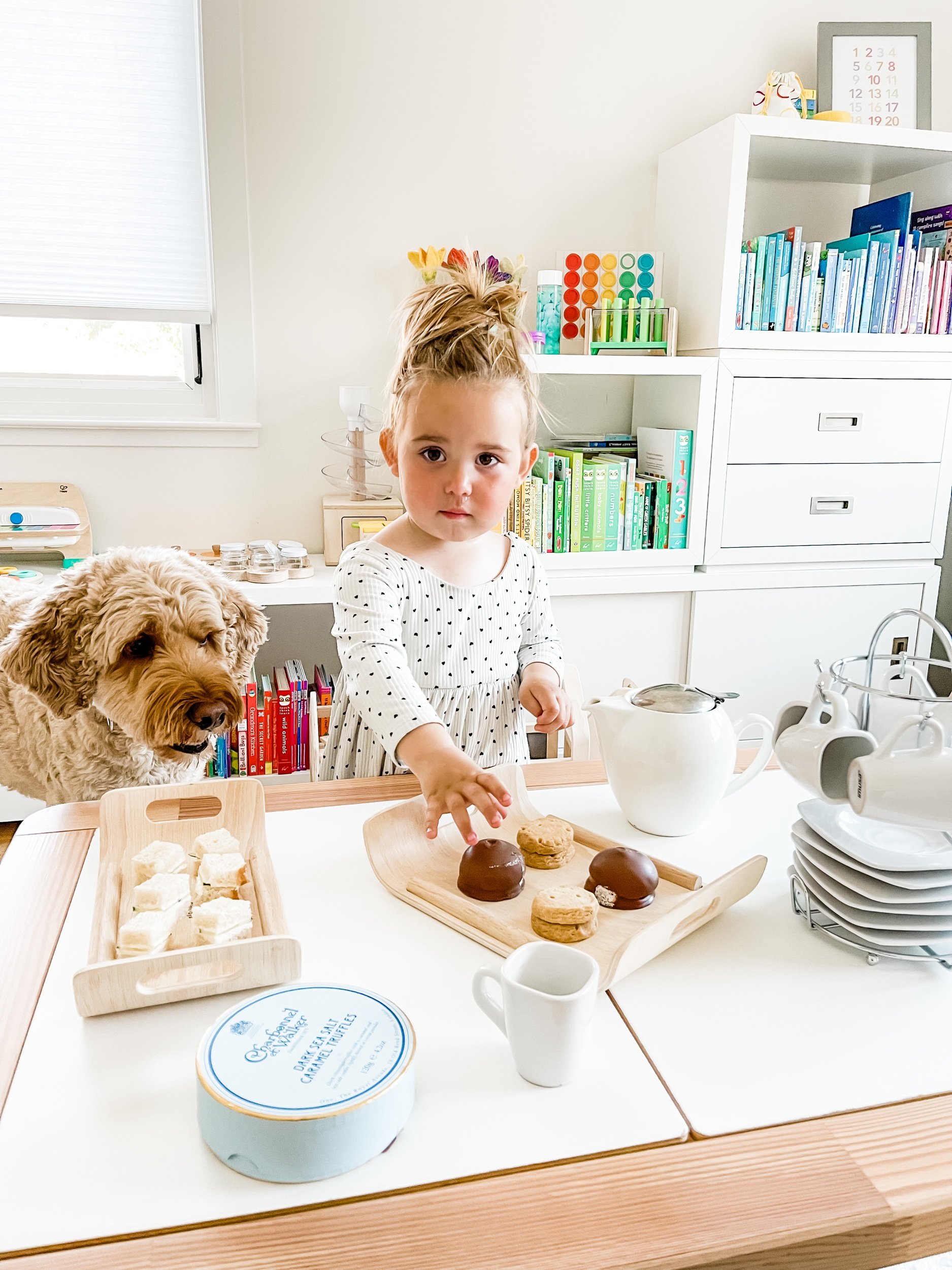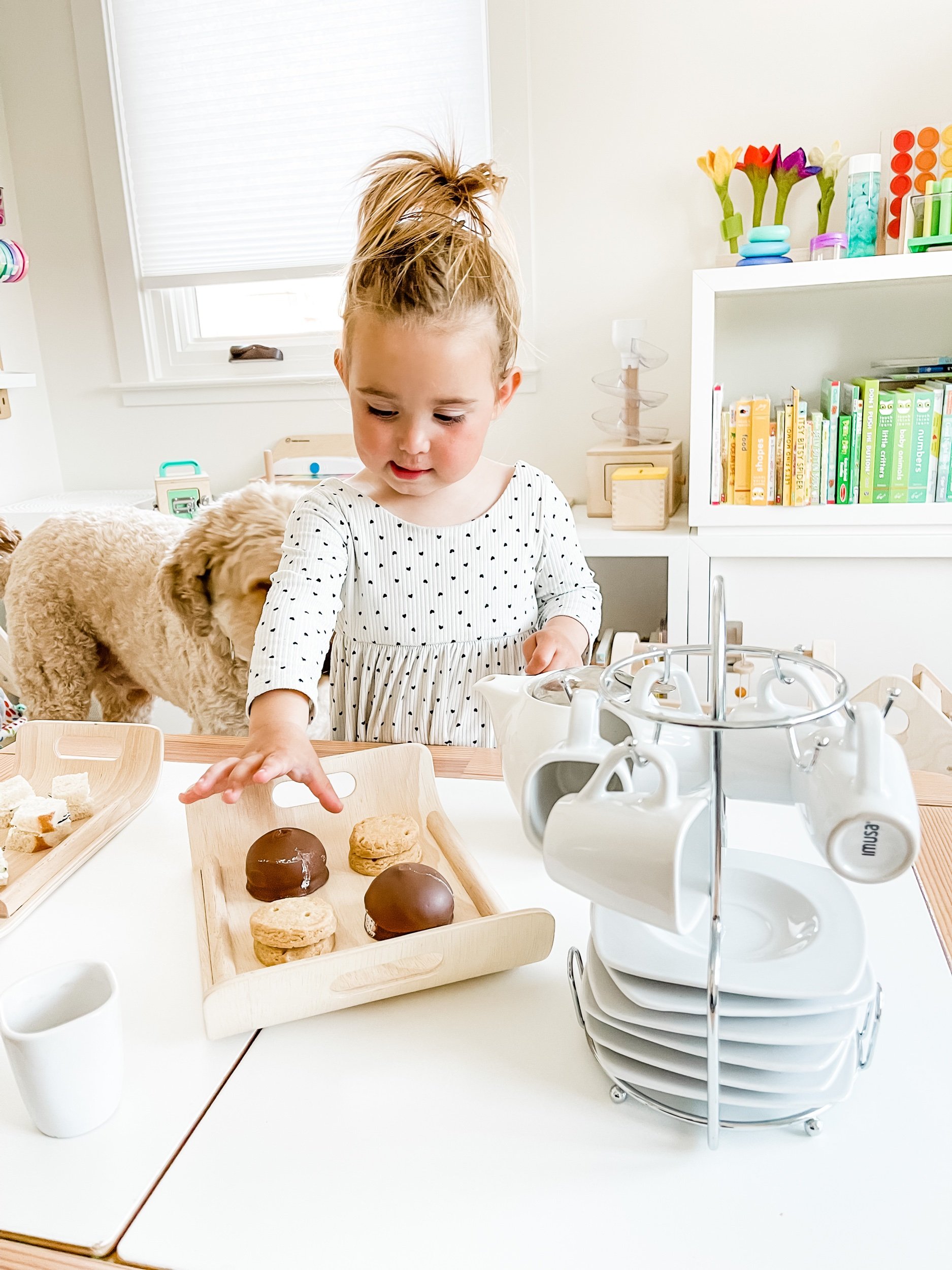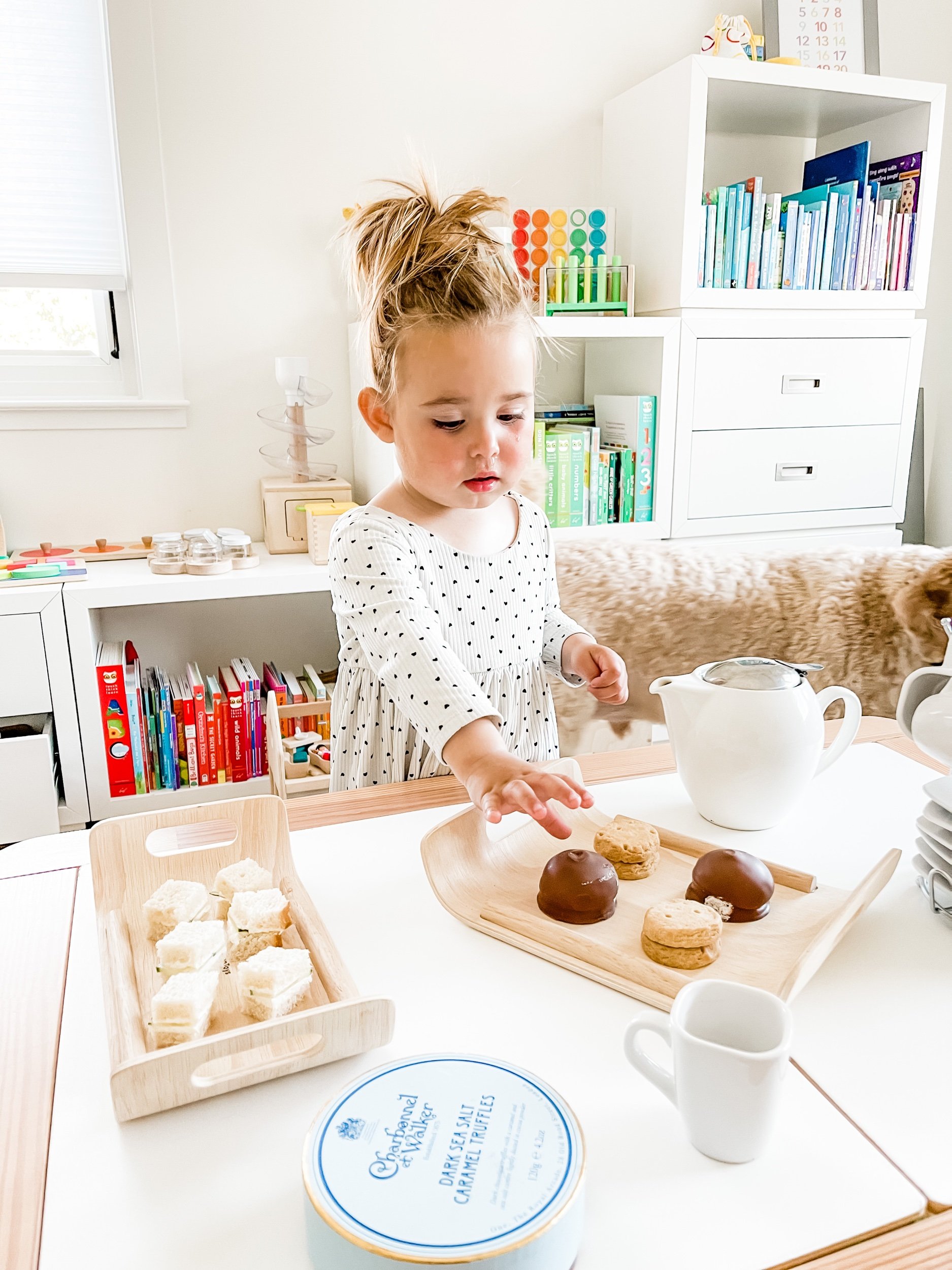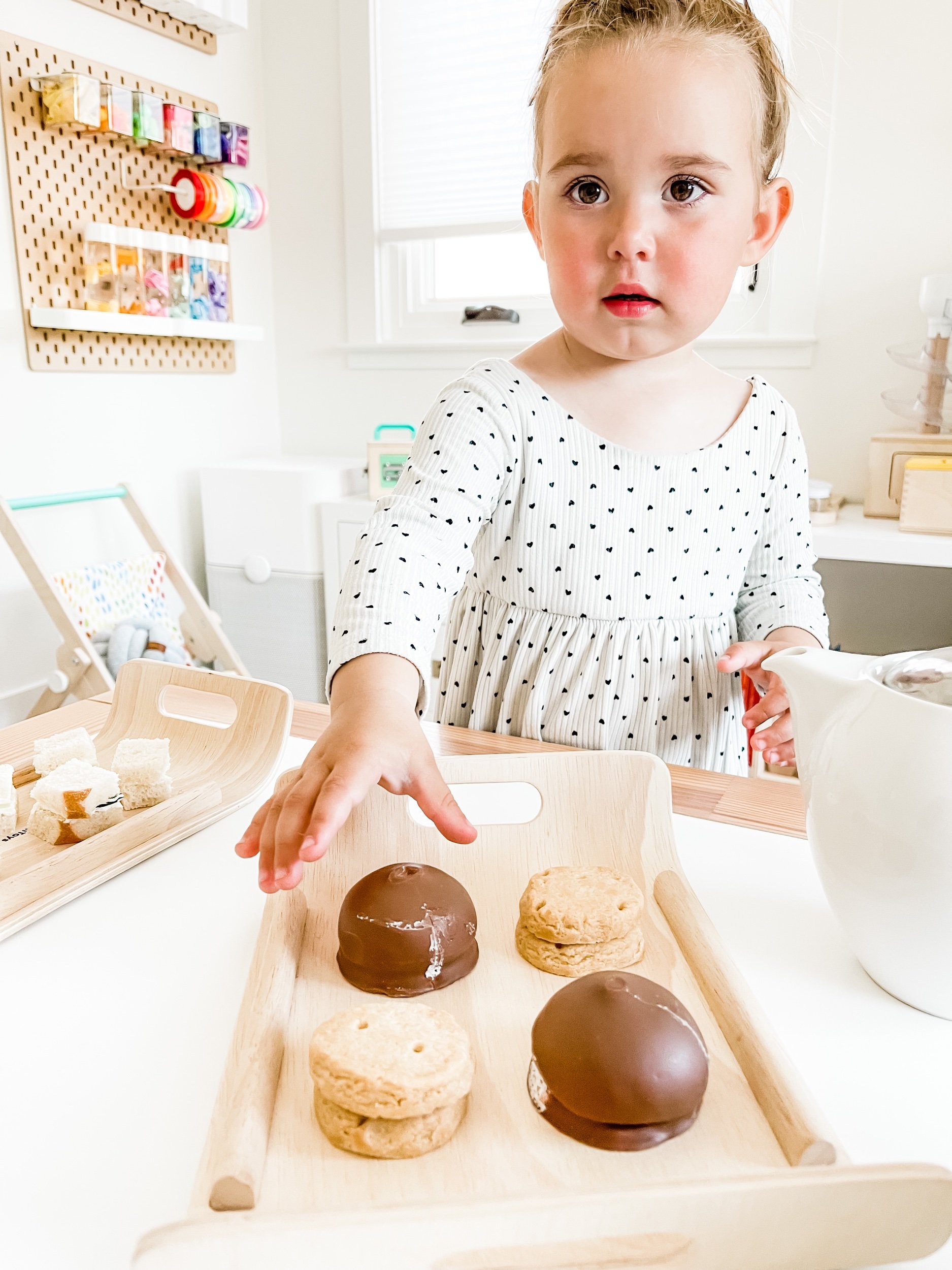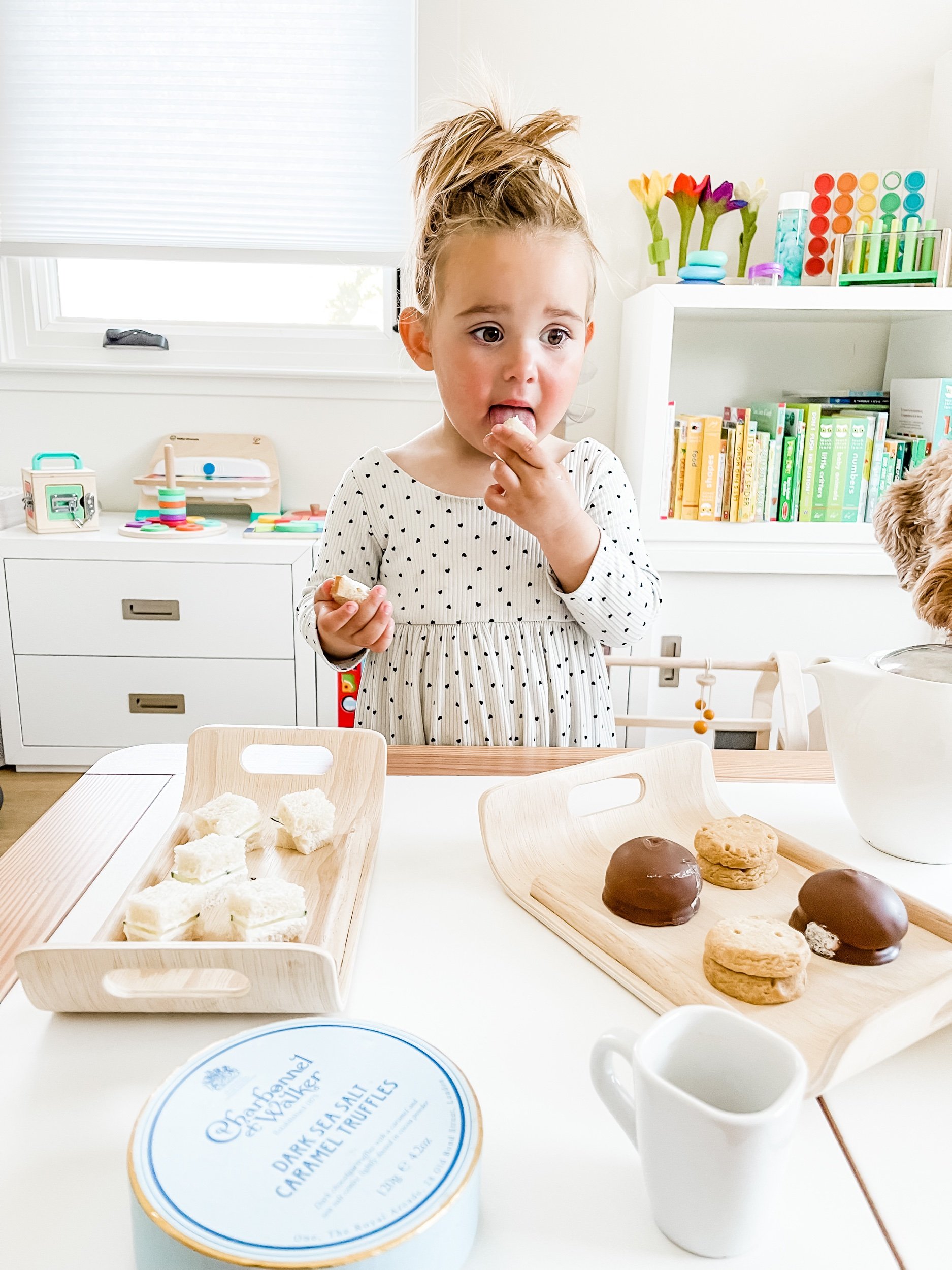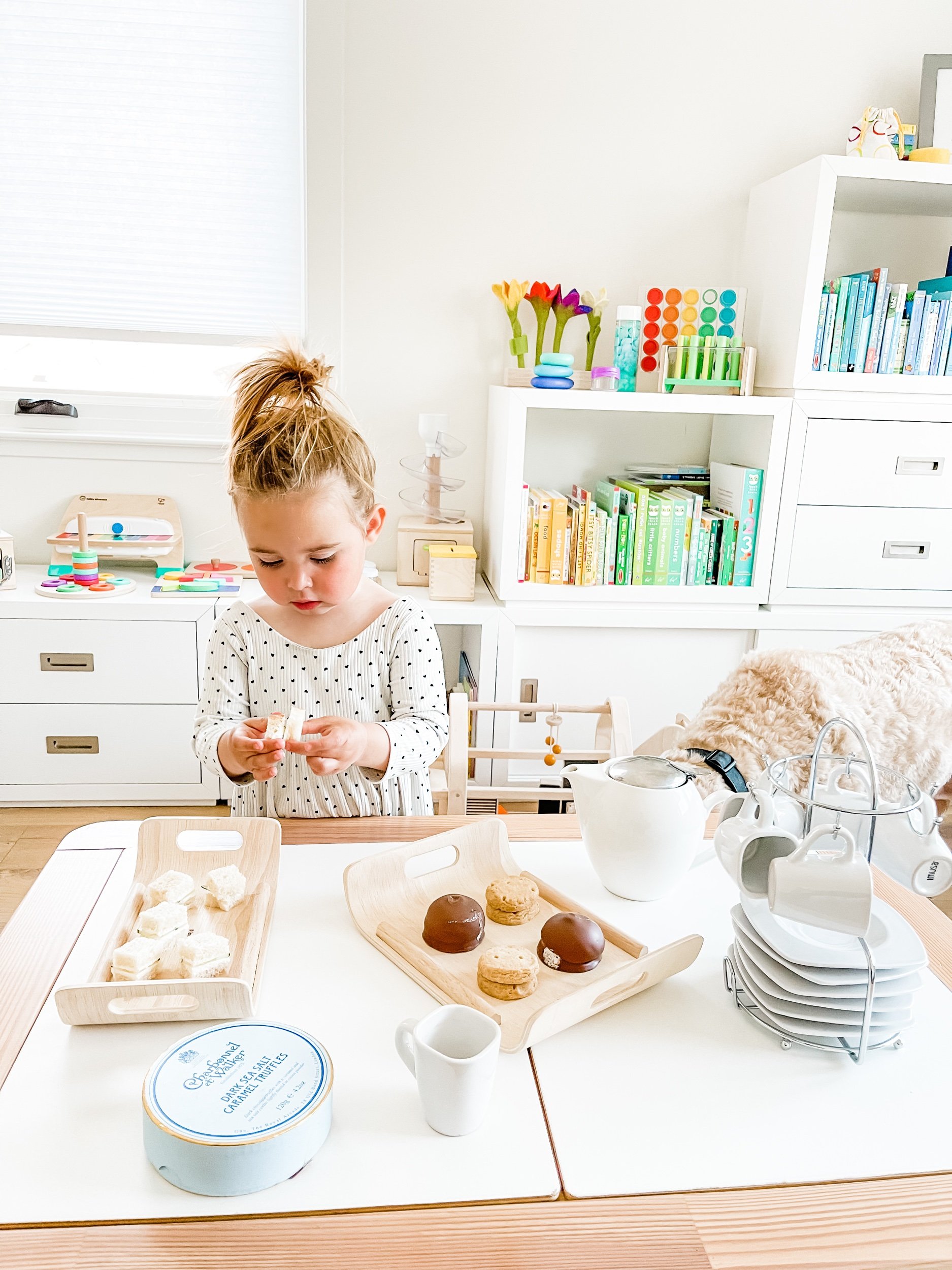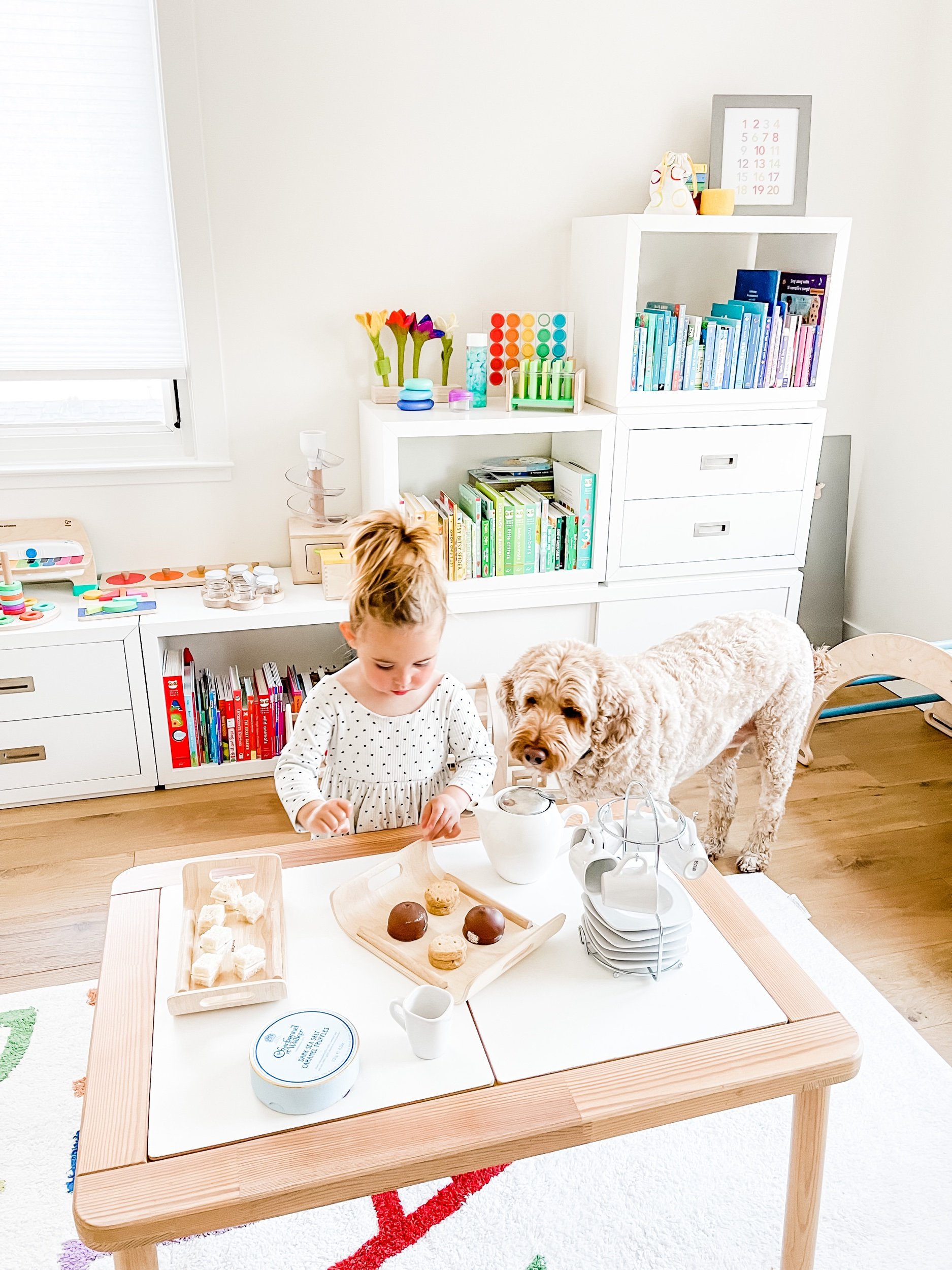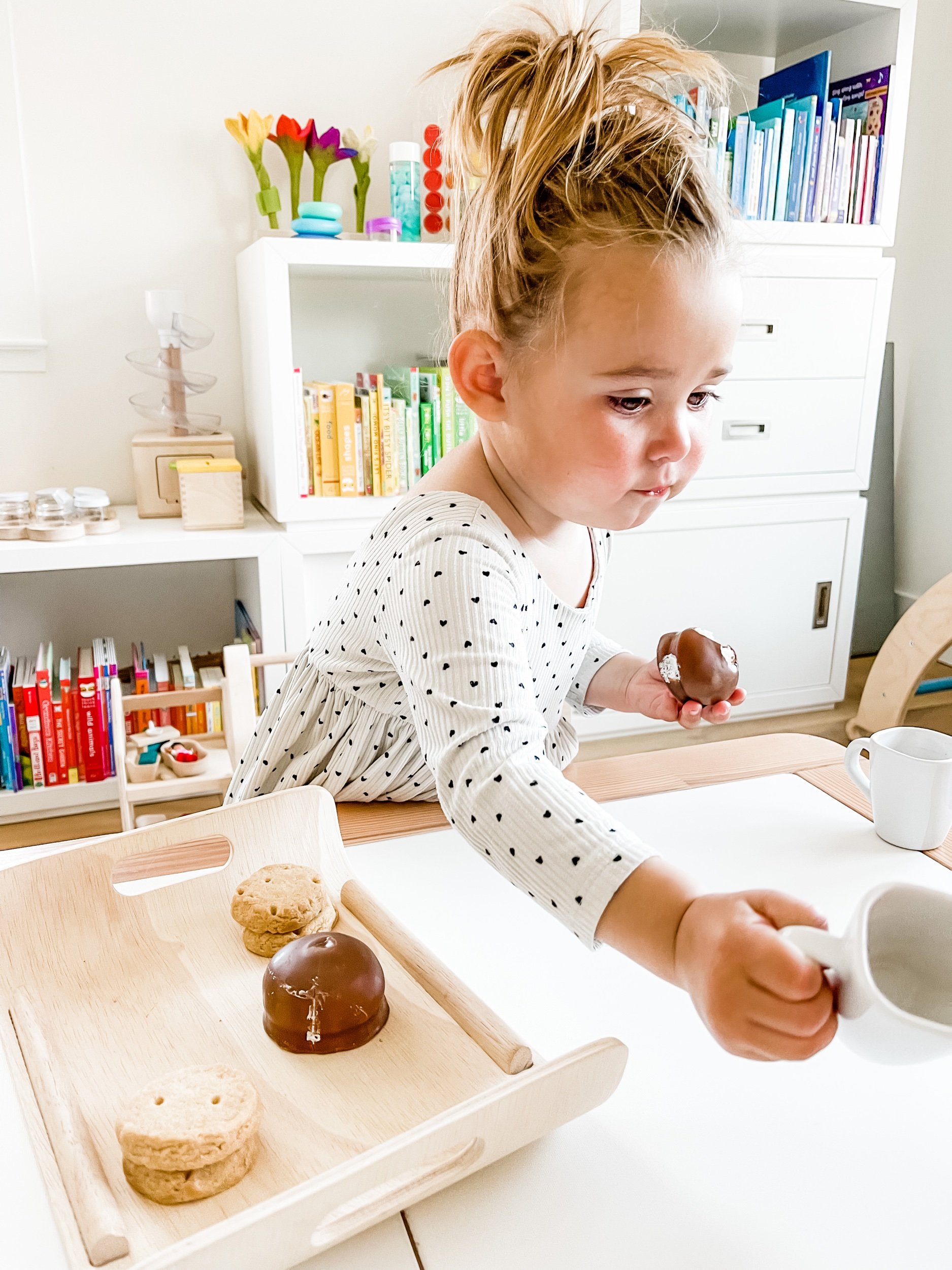Boosting Toddler Education through Dramatic Play: The Fun of Tea Parties
Dramatic play is a crucial part of a toddler's education and development. It helps children to explore their imagination and learn valuable skills in a fun and interactive way. A tea party setup is a perfect example of how dramatic play can be a source of both fun and learning for toddlers.
Here are some of the benefits of incorporating dramatic play into a toddler's education:
Improves language skills: During dramatic play, toddlers have the opportunity to practice and improve their language skills. They can use new words, sentences and expressions, helping to expand their vocabulary and improve their communication skills.
Encourages socialization: Dramatic play allows toddlers to interact with others and learn how to engage in social situations. Tea parties provide a fun and safe environment for kids to practice sharing, taking turns, and building relationships with others.
Develops creativity: Dramatic play encourages children to be creative and imaginative. By setting up a tea party, children have the opportunity to come up with their own ideas and role-play different scenarios.
Builds problem-solving skills: Dramatic play helps children develop their problem-solving skills as they work together to find solutions to challenges and overcome obstacles.
Enhances emotional development: Dramatic play provides a safe space for children to express their emotions and explore their feelings. Tea parties can help children learn about emotions, empathy, and social cues.
In my daughter's tea party setup, she and her friends were able to learn and practice all these skills. The tea party was a fun and interactive experience that allowed them to use their imaginations, engage in social situations, and practice problem-solving.
In conclusion, dramatic play is a valuable tool for promoting toddler education and development. Incorporating tea parties and other dramatic play activities into a toddler's routine can help to improve language skills, encourage socialization, develop creativity, build problem-solving skills, and enhance emotional development.


